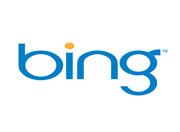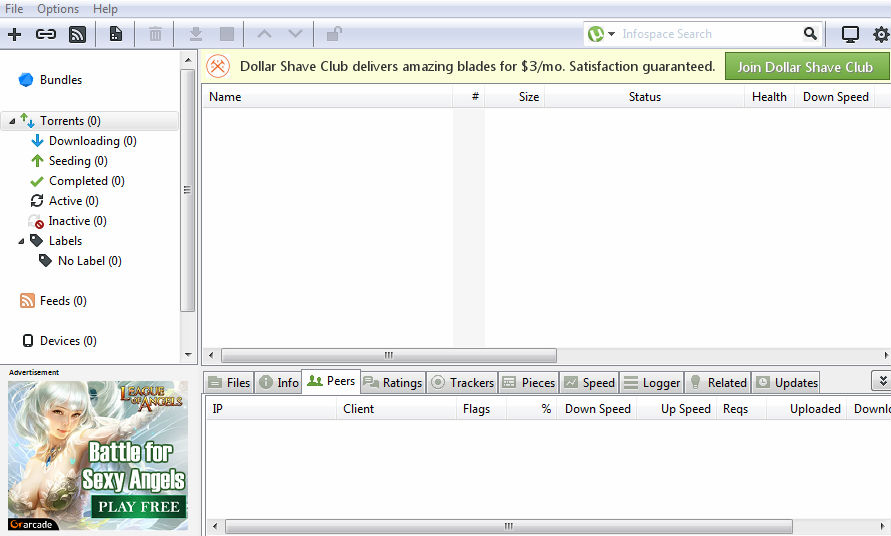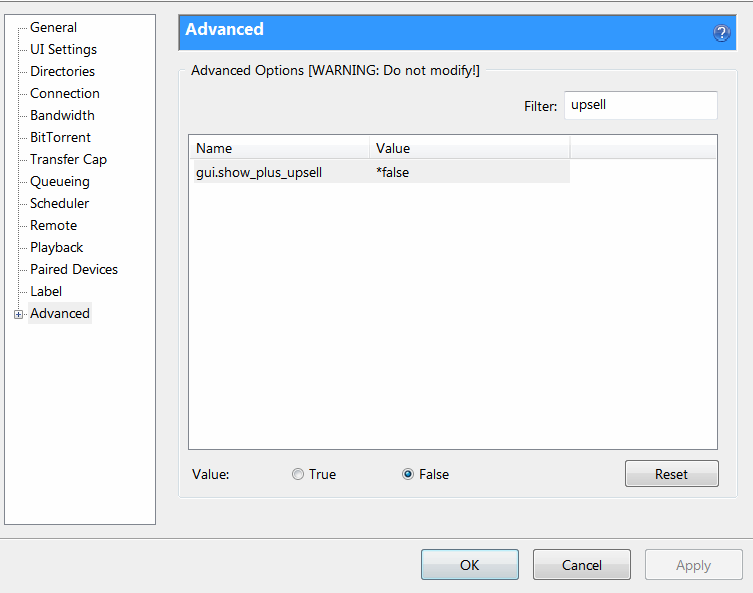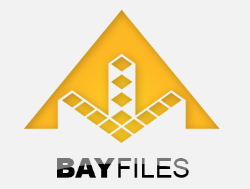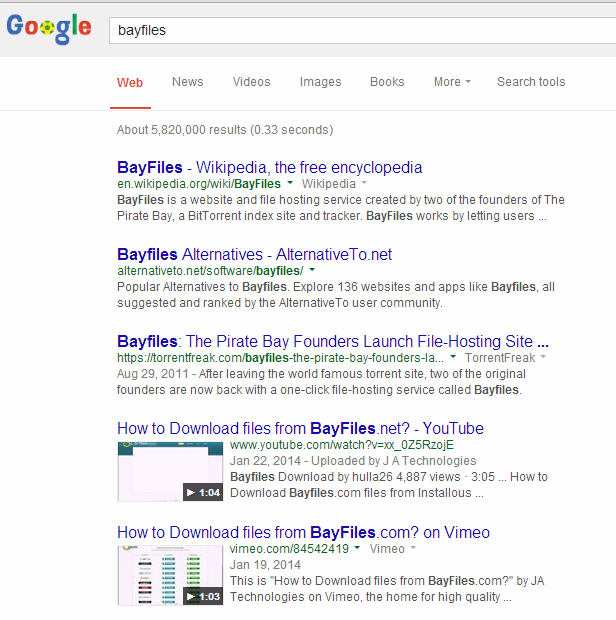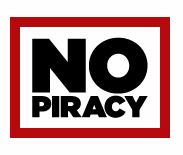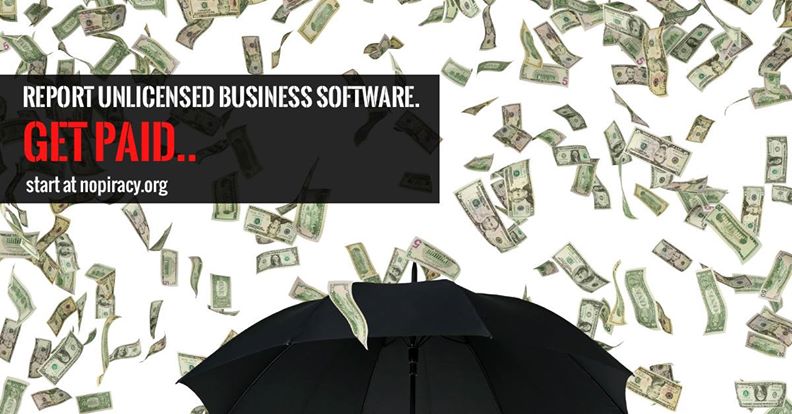TorrentFreak Email Update |
- UK Cinemas Ban Google Glass Over Piracy Fears
- Top 10 Most Pirated Movies of The Week – 06/30/14
- The File-Sharing Wars Are Anything But Over
- Bing TV Show Search Flies Under the Pirate-Hunter Radar
| UK Cinemas Ban Google Glass Over Piracy Fears Posted: 30 Jun 2014 02:13 AM PDT
It started well over a decade ago when visitors began sneaking handheld camcorders into theaters. These big clunkers were relatively easy to spot, but as time passed the recording devices grew smaller and easier to obfuscate. Google Glass is one of the newest threats on the block. Earlier this year the FBI dragged a man from a movie theater in Columbus, Ohio, after theater staff presumed he was using Google Glass to illegally record a film. While the man wasn’t recording anything at all, the response from the cinema employees was telling. This month Google Glass went on sale in the UK, and unlike their American counterparts, British cinemas have been quick to announce a blanket ban on the new gadget. “Customers will be requested not to wear these into cinema auditoriums, whether the film is playing or not,” Phil Clapp, chief executive of the Cinema Exhibitors’ Association told the Independent. The first Glass wearer at a Leicester Square cinema has already been instructed to stow his device, and more are expected to follow. Google Glass wearers with prescription lenses would be wise to take a pair of traditional glasses along if they want to enjoy a movie on the big screen. Movie industry group FACT sees Google Glass and other new recording devices as significant threats and works in tandem with local cinemas to prevent film from being recorded. “Developments in technology have led to smaller, more compact devices which have the capability to record sound and vision, including most mobile phones. FACT works closely with cinema operators and distributors to ensure that best practice is carried out to prevent and detect illegal recordings taking place,” the group says. In recent years the UK movie industry has intensified its efforts to stop camcording and not without success. In 2012 none of the illegally recorded movies that appeared online originated from a UK cinema while several attempts were successfully thwarted. Last year, cinema staff helped UK police to arrest five people and another nine were sent home with cautions. As a thank you for these vigilant actions, the Film Distributors' Association awarded 13 cinema employees with cash rewards of up to £500. Source: TorrentFreak, for the latest info on copyright, file-sharing and anonymous VPN services. | ||||||||||||||||||||||||||||||||||||||||||||||||
| Top 10 Most Pirated Movies of The Week – 06/30/14 Posted: 30 Jun 2014 12:06 AM PDT
Rio 2 is the most downloaded movie this week. The data for our weekly download chart is estimated by TorrentFreak, and is for informational and educational reference only. All the movies in the list are BD/DVDrips unless stated otherwise. RSS feed for the weekly movie download chart.
Source: TorrentFreak, for the latest info on copyright, file-sharing and anonymous VPN services. | ||||||||||||||||||||||||||||||||||||||||||||||||
| The File-Sharing Wars Are Anything But Over Posted: 29 Jun 2014 02:36 PM PDT
On one hand, you have the copyright industry, now content thinking it won the war against the net generation – or net generations by now (plural). File-sharing has stopped growing, the copyright industry observes, and controlled streaming is growing exponentially. New technology has produced a better offering that outcompeted the inferior pirate alternatives, and in the end, people wanted to do the legal thing, the copyright industry argues. But this is very far from the truth. The only true part of it is that the number of people sharing culture and knowledge is no longer growing exponentially, but that’s because the habit is saturated. One-third of young people in the US and Europe today share culture – in violation of the copyright monopoly – daily or almost-daily. A phenomenon can’t keep growing exponentially forever in a finite population: eventually, everybody’s doing it, and that’s the point we have arrived at now. Apart from that, it is true that the copyright industry has produced better offerings: Pandora, Netflix, and HBO streaming. But so have the people who manufacture their copies without a license. The Pirate Bay is ten years old; almost as old as Microsoft’s Windows XP, to put it in context. (Anybody remember Microsoft?) Yet, despite HBO’s successful and profitable subscription model, record numbers of us get our latest fix of Game of Thrones delivered automatically directly to our desktop the instant it is available, courtesy of RSS torrenting and EZTV, or your own favorite supplier. And if we don’t like torrenting, but actually like streaming? Turns out that the pirate equivalents of the commercial offerings far surpass the simplicity, accessibility, and ease of use of the copyright industry’s technology – and that’s not even going into selection and absence of laughingly stupid “not available in your country” messages. From Popcorn Time to Zona, the happy amateur sharers are miles and leagues ahead of the copyright industry. The technology that the copyright industry claims “already has won the war” for that obsolete industry? Well, it turns out that the net generation could use the same technology to build a lot better services still. Teens today make absolutely no distinction whether services are “legal” or not; they just grab stuff from where it’s easiest. In this environment, people on the other side – the people manufacturing unlicensed copies of knowledge and culture, and sharing those copies in turn – have also taken a victory for granted. We’re getting our Game of Thrones, we’re getting our movies and porn as we always have, what’s the big deal? The Pirate Bay team was sentenced in a mock trial five years ago to largely no effect whatsoever (except for those poor individuals), the site itself is still up, and new great services for manufacturing our own copies of knowledge and culture are appearing by the month. Why bother fighting? This is long over, right? Not so fast. SOPA and ACTA was just two years ago, in 2012. They were struck back, but their obfuscated spawn are already appearing. We’ve seen and heard the acronyms TPP, TTIP, CISP, CETA, and others. The copyright industry keeps working, it just does so out of the sunlight. In the end, this is about the power of narratives, the greatest power anybody has ever had. And the copyright industry isn’t giving it up without a fight. The file-sharing wars are far from over. There may be a bit of silence on the fronts at the moment. Enjoy it, and prepare for what’s coming.  About The Author Rick Falkvinge is a regular columnist on TorrentFreak, sharing his thoughts every other week. He is the founder of the Swedish and first Pirate Party, a whisky aficionado, and a low-altitude motorcycle pilot. His blog at falkvinge.net focuses on information policy. Book Falkvinge as speaker? Source: TorrentFreak, for the latest info on copyright, file-sharing and anonymous VPN services. | ||||||||||||||||||||||||||||||||||||||||||||||||
| Bing TV Show Search Flies Under the Pirate-Hunter Radar Posted: 29 Jun 2014 08:10 AM PDT
Every week the search engine receives millions of DMCA takedown notices requiring it to take case-by-case action, but the company’s reluctance to do something more permanent has made it search-engine-enemy-#1 with copyright holders who never miss an opportunity to lay on the criticism. In the background, however, Microsoft’s Bing flies comparatively under the radar. Sure it processes plenty of takedown notices too, but it receives little of the corporate pressure piled onto Google. This can only be a result of Google’s place in the market, since Mr Don’t Be Evil has done more than its rival to combat piracy. Case in point, Bing’s powerful and somewhat under-used streaming video search engine which offers to find TV shows from the get-go.  While Google gets heavily criticized for its AutoComplete feature (which is already partially censored following copyright holder requests), Bing has no problem in first offering TV shows and then completing suggestions of what to watch. Tap in “BRE” and at the top of the list appears BREAKING BAD. We clicked the option – Bing delivered. The first few results are shown below but those are just the tip of the iceberg and more specific show searches hardly ever come up short either. The auto-suggestions at the top of the screen are there in case ideas run out too, helpfully pushing the user towards varies series and specific episodes.  As can be seen from the image above, those who are fussy over the quality of the content being presented can filter by resolution too, right up to 1080p. Also, restricting searches to videos over 20 mins rejects many trailers and other samplers in favor of episodes and full length movies. Aside from being a pretty good search engine (it came up with some long-forgotten TV show pilots from the 1970s), Bing also has a rather nice trick up its sleeve. Hover a mouse over any video thumbnail shown in the results and its size will instantly increase to display a proper video preview of the content in question. As far as we’re aware, no other search engine online today does that.  Of course, someone at Bing isn’t deliberately programming its engine to present infringing results, those are determined by intelligence gleaned from user search requests. That being said, if Google debuted a new “TV Show” search engine tomorrow and began auto-completing and auto-suggesting infringing TV content, weeks-long industry hysteria would ensue. It’s also worth pointing out that Google also has a decent video search which is almost certainly used by many, many more millions than Bing’s. It’s nowhere near as glossy and definitely not as ‘risky’ in how it presents content, but that won’t stop the search company from continuing to take most of the rightsholder flak due to its colossal userbase and its uncontested position in the market. Make no mistake, Google will remain in the firing line for the foreseeable future, even while other companies get away with much, much more. But their time will come, it’s almost inevitable, an event that could be triggered by Google caving in to increasing rightsholder demands. Source: TorrentFreak, for the latest info on copyright, file-sharing and anonymous VPN services. | ||||||||||||||||||||||||||||||||||||||||||||||||
| You are subscribed to email updates from TorrentFreak To stop receiving these emails, you may unsubscribe now. | Email delivery powered by Google |
| Google Inc., 20 West Kinzie, Chicago IL USA 60610 | |



